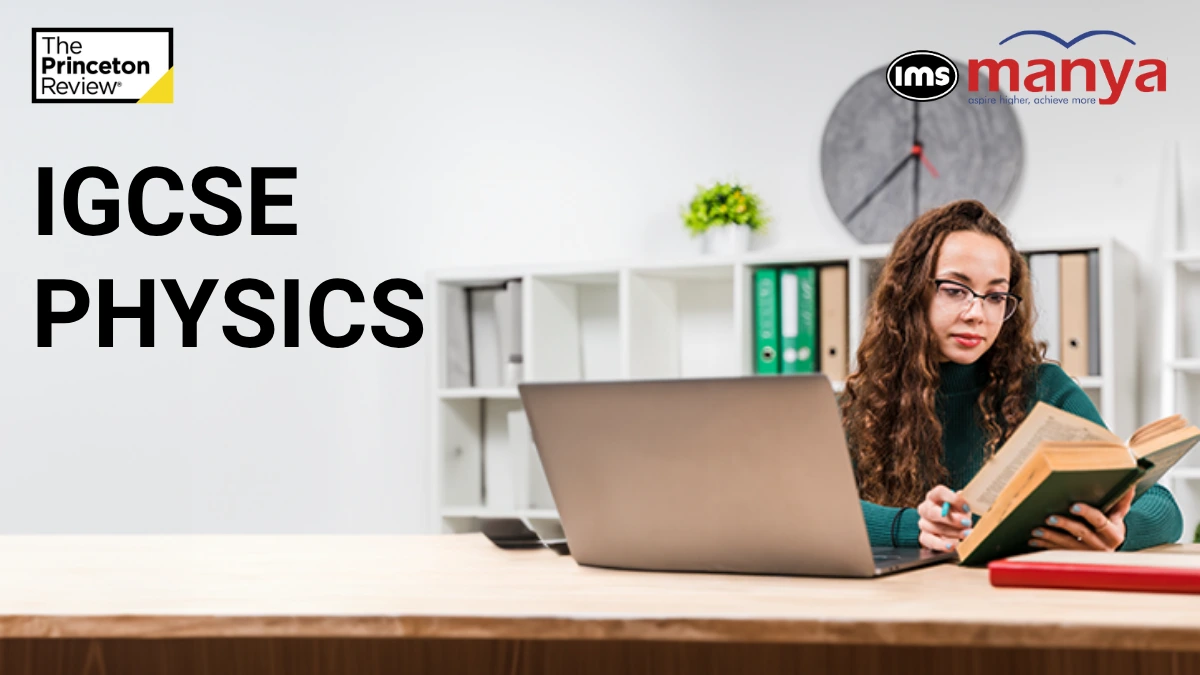IGCSE Physics: Syllabus, Key Concepts & Exam Preparation

IGCSE Physics provides students with a comprehensive understanding of the technological landscape while inspiring curiosity about nature and the significant scientific advancements of recent centuries.
Throughout this course, students explore essential theories and principles of Physics and engage in various hands-on experiments.
The primary objective of the course is to build a strong foundation in physics, fostering a lasting interest in the subject for further academic pursuits. Additionally, the course emphasizes that physics involves the study of natural events, which can be understood through empirical evidence and factual analysis. Given its critical role in education, students may require proper support to grasp the concepts fully. Through our online IGCSE academic tutoring, students can receive tailored guidance from experienced IGCSE physics tutors, allowing them to deepen their knowledge of the subject effectively.
The IGCSE Physics syllabus consists of 5 topics, which are:
- General Physics
- Thermal Physics
- Properties of Waves, including Light and Sound
- Electricity and Magnetism
- Atomic Physics
The Cambridge IGCSE Physics course aids students in grasping the technological aspects of their environment while fostering a keen interest in science and its advancements.
The curriculum addresses essential principles and concepts in physics, highlights contemporary applications, and places a strong focus on practical skills. Additionally, learners develop the scientific abilities necessary for progression to Cambridge International AS and A Level, as well as for further studies or careers in scientific fields.
Key Resources:
- Official IGCSE Physics book
- Curated IGCSE Physics notes
- Solved IGCSE Physics past papers
The Course’s Objectives
The objectives are as follows:
Provide an enjoyable and worthwhile educational experience for all learners, regardless of whether they continue their studies in science beyond this level.
Provide learners with the knowledge and understanding they need to:
– Develop an informed interest in scientific matters and become self-assured citizens in a technological world.
– Be adequately prepared for studies beyond the Cambridge IGCSE
• Enable learners to recognise that science is evidence-based and to comprehend the utility and limitations of the scientific method
• Develop skills that are:
– relevant to the study and practice of biology
– useful in everyday life
– encourage a systematic approach to problem solving
– efficient and safe practice
– effective communication through scientific language
• Foster biological attitudes such as
– Concern for accuracy and precision
– Objectivity
– Integrity
– Inquiry
– Initiative
– Inventiveness
• Help learners understand that
– Science is subject to social, economic, technological, ethical, and cultural influences and limitations
– Science applications can be both beneficial and harmful to individuals, communities, and the environment.
Planning to Prepare for IGCSE Physics?
Assessment Objectives
1. Knowledge combined with Comprehension
Candidates must be able to demonstrate knowledge and comprehension of the following topics:
- Scientific phenomena, facts, laws, definitions, concepts, and theories
- Scientific vocabulary, terminology, and conventions (including symbols, quantities, and units)
- Scientific instruments and apparatus, including operation techniques and safety considerations
- Scientific and technological applications, including their social, economic, and environmental implications
2. Information management and problem solving
Candidates must be able to understand words or other written forms of presentation (i.e. symbolic, graphical, and numerical)
- Find, select, organise, and present information from various sources.
- Convert information from one form to another; manipulate numerical and other data; use information to identify patterns, report trends, and draw inferences;
- Present reasoned explanations for phenomena, patterns, and relationships; and make recommendations.
- Form hypotheses and predictions.
- Solve problems, some of which are quantitative in nature.
3. Investigative and experimental skills
- Demonstrate knowledge of how to use techniques, apparatus, and materials safely (including following a sequence of instructions where appropriate)
- Plan experiments and investigations
- Make and record observations, measurements, and estimates.
- Interpret and evaluate experimental observations and data.
Common Questions Addressed:
• How to study for Physics IGCSE: Focus on syllabus alignment + past paper practice
•Is IGCSE Physics hard?: Manageable with proper resources and tutoring
• How long does it take to study IGCSE Physics: Typically 6-9 months with structured planning



